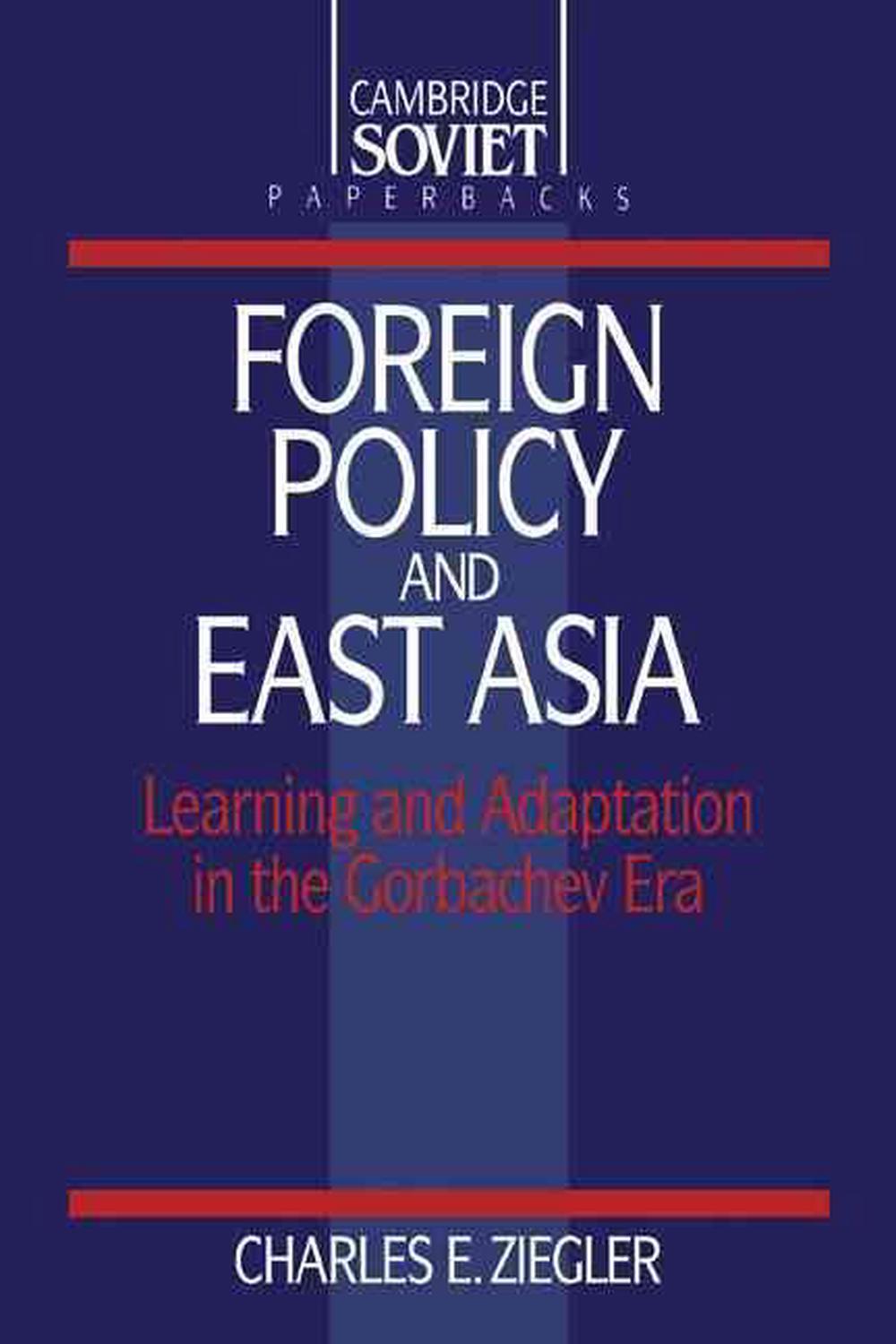
When you click on links to various merchants on this site and make a purchase, this can result in this site earning a commission. Affiliate programs and affiliations include, but are not limited to, the eBay Partner Network.
Foreign Policy and East Asia: Learning and Adaptation in the Gorbachev Era by Ch

- Item No : 157050649146
- Condition : Brand New
- Brand : No brand Info
- Seller : the_nile
- Current Bid : US $42.68
-
* Item Description
-
The Nile on eBay

Foreign Policy and East Asia: Learning and Adaptation in the Gorbachev Era
by Charles E. Ziegler
In this book Charles Ziegler develops the concept of learning in foreign policy by exploring the link between Mikhail Gorbachev's domestic reforms and the radical transformation of Soviet relations with North-east Asia in the 1980s.
FORMAT
PaperbackLANGUAGE
EnglishCONDITION
Brand New
Publisher Description
This book is a study of Soviet ties with Northeast Asia— China, Japan, and North and South Korea—in the 1980s. It develops the concept of learning in Soviet foreign policy by examining the internal and external factors that ultimately led Gorbachev and other reformers to reject the fundamental premises upon which the Soviet system was based. The author examines the economic, political, ideological and military aspects of changing Soviet relations with the region, and argues that radical reform was due less to the pressures of the Cold War, than to factors internal to the Soviet Union.
Table of Contents
1. Introduction; 2. Learning, adaptation, and foreign policy change; 3. Learning and adaptation in the historical context; 4. The People's Republic of China; 5. Japan; 6. The Korean peninsula; 7. Learning and security in the Asian-Pacific region; 8. Conclusion: Soviet foreign policy learning.
Review
"...a detailed study of Soviet policy toward China, the two Koreas, and Japan during the Gorbachev era that shows Soviet application of a new approach to security issues toward a vitally important region. The chapters on particular areas or countries are interesting and well written." Choice "Lucid and often persuasive arguments are mobilized to highlight the significance of learning and adaptation in the formulation of foreign policy." John J. Stephan, Slavic Review "...an insightful book on Soviet policy toward East Asia in the 1980s." Wayne Patterson, Asian Affairs
Review Quote
"Lucid and often persuasive arguments are mobilized to highlight the significance of learning and adaptation in the formulation of foreign policy." John J. Stephan, Slavic Review
Promotional "Headline"
An examination of Soviet relations with North-east Asia in the 1980s and the link between domestic reform and foreign policy change.
Description for Bookstore
This book is a study of Soviet relations with North-east Asia in the 1980s, focusing on the links between Soviet domestic reforms and fundamental changes in Soviet foreign policy. The author uses the concept of foreign policy learning to analyse the motives of Gorbachev's foreign policy reforms.
Description for Library
This book is a study of Soviet relations with North-east Asia in the 1980s, focusing on the links between Soviet domestic reforms and fundamental changes in Soviet foreign policy. The author uses the concept of foreign policy learning to analyse the motives of Gorbachev's foreign policy reforms.
Details
ISBN0521425646Author Charles E. ZieglerPublisher Cambridge University PressSeries Cambridge Soviet PaperbacksLanguage EnglishISBN-10 0521425646ISBN-13 9780521425643Media BookDEWEY 327.470Series Number 0010Year 1993Publication Date 1993-09-30Imprint Cambridge University PressSubtitle Learning and Adaptation in the Gorbachev EraPlace of Publication CambridgeCountry of Publication United KingdomBirth 1953Short Title FOREIGN POLICY & EAST ASIAPages 212Format PaperbackIllustrations Worked examples or ExercisesDOI 10.1604/9780521425643Audience Professional and ScholarlyUK Release Date 1993-09-23AU Release Date 1993-09-23NZ Release Date 1993-09-23


















